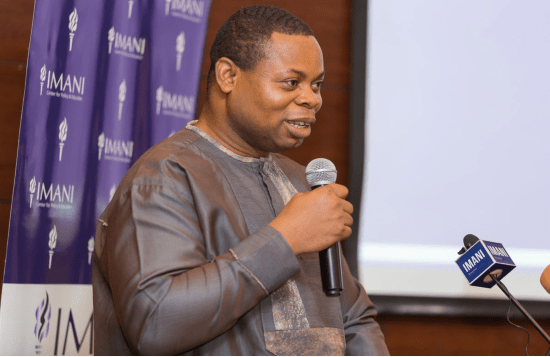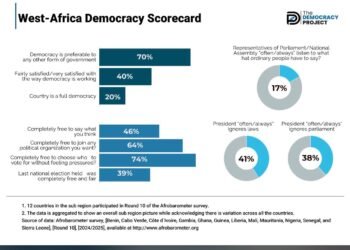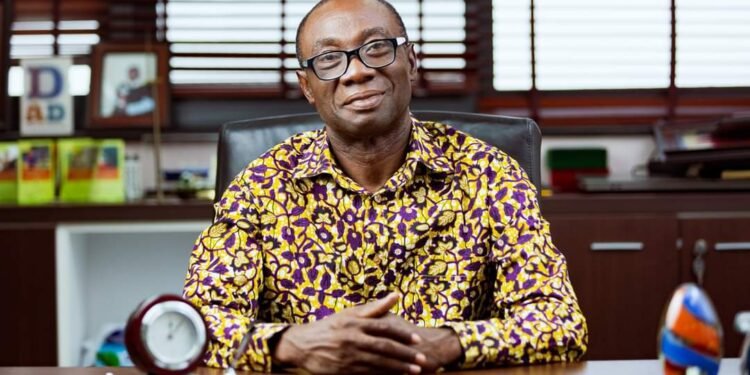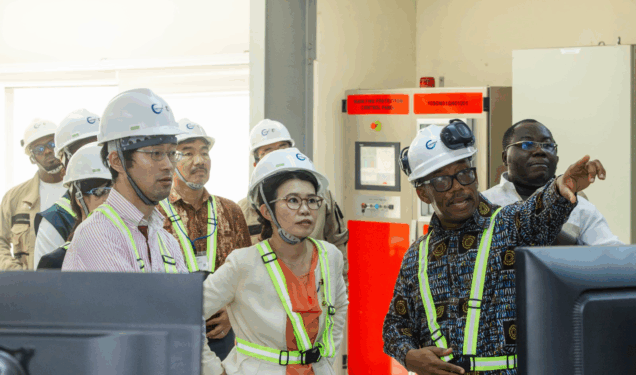Ghana’s economy plays a vital role in addressing the country’s current issues, which are multifaceted and interconnected.
A robust economy can help reduce poverty and income inequality, which are significant challenges in Ghana.
Economic growth can lead to increased employment opportunities, higher incomes, and improved access to essential services like healthcare and education.
Accordingly, Franklin Cudjoe, President of IMANI Africa, has emphatically stated that the economy remains his foremost concern, citing its far-reaching impact on the lives of citizens and the overall development of the country.
He emphasized that a strong economy is the foundation upon which all other sectors can thrive, and therefore, it is crucial to prioritize economic growth and stability.
“The economic carnage that heralded the first-ever literal pickpocketing of our savings through skullduggery financial haircuts even for old, frail, and near-death pensioners finally pummeled all of us into a debt exchange program”.
Franklin Cudjoe
Franklin Cudjoe expressed deep concern over the economic woes that had beset the nation, particularly the unprecedented 30-year high inflation rate that had ravaged the already meager savings of citizens, eroding their purchasing power and diminishing their economic security.
The situation, he indicated, was further exacerbated by skyrocketing interest rates, which had the effect of nullifying the value of savings and plunging countless individuals into financial distress.
The President of IMANI, Franklin Cudjoe, solemnly noted that the cumulative effect of these economic missteps was a catastrophic loss of credibility, culminating in Ghana’s unprecedented exclusion from international markets as a credible borrower.
He pointed out that this historic setback marks a first in the country’s political and economic history in a generation, underscoring the grave consequences of poor economic governance and the urgent need for corrective action.
As such, Franklin Cudjoe strongly condemned the government for its gross mismanagement of the economy, which has been reduced to a state of utter disarray and shambles.
Economic Crisis Worsens
Furthermore, Franklin Cudjoe highlighted that the severely dented economy has resulted in an alarming unemployment rate and a foreign exchange rate that has skyrocketed, with the $-GHS rate nearly quadrupling since 2016.
Cudjoe lamented that the economic collapse has had a catastrophic impact on the most vulnerable populations, plunging nearly a million more individuals into abject poverty, further entrenching inequality, and exacerbating social hardship.

With candor, he criticized the economy’s current course, expressing his deep disappointment and concern over the misguided policies shaping its future.
“No doubt the new finance minister is doing well to reverse the huge gaps, but a lot remains to be done. We really should have had him earlier”.
“Good morning Dr. Mahamudu Bawumia there are reports of looming food shortages up north due to poor rains. May we be spared the harshest effect of the looming food crisis as the rains have failed up north”.
Franklin Cudjoe
Franklin Cudjoe commended the Ministers of Agriculture, Finance, and Defense for their efforts in trying to reduce the severity of the looming crisis, stating that they are doing a commendable job in containing the situation.
He nonetheless emphasized the need for the country to intensify its efforts to reduce its reliance on rainfall and invest in sufficient storage infrastructure, thereby ensuring resilience during periods of scarcity.
He warned that the economy and its population are too vulnerable to withstand another preventable shock, emphasizing the need for proactive measures to mitigate potential risks.
Franklin Cudjoe pointed out that Dr. Bawumia vigorously championed the “1 village-1 dam” initiative as the most effective solution to enhance existing irrigation infrastructure, implying that this approach may not be the best strategy.
He highlighted that billions of dollars have been invested in these dams, and sought answers on their current status and when they can be expected to become operational and start yielding benefits.























